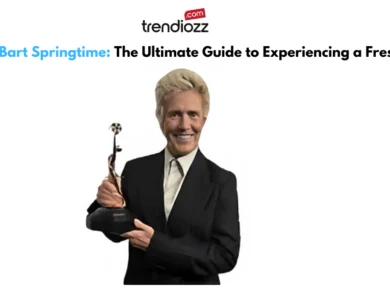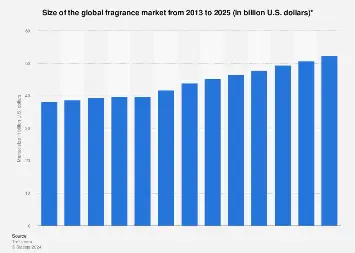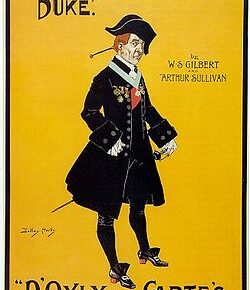The Oilers fan flash not censored incident is one of the most talked-about moments in sports fandom history. It sparked debates, generated memes, and had people around the world taking a second look at what really went down. If you’re hearing about this for the first time, or want a deeper dive into what happened, you’re in the right place! This article explores the background of the incident, its implications, and why it has become such a hot topic. We’ll break it down with real-life examples, FAQs, and a closer analysis of what the Oilers fan flash not censored moment says about sports culture today.
Key Takeaways from the Oilers Fan Flash Not Censored Incident
| Point | Description |
|---|---|
| Incident Overview | A fan flashed the camera during an Oilers game, and it wasn’t censored. |
| Broadcasting Lapse | There was no delay or censorship, which led to the clip going viral. |
| Social Media Reaction | The clip spread rapidly, garnering millions of views. |
| Viewer Reactions | Fans were split between finding it funny and inappropriate. |
| Ethical Dilemma | Should all unexpected moments be censored? |
| Psychological Impact | These incidents disrupt the curated image of sports and elicit strong emotions. |
| Broadcaster Response | The network issued a public apology and promised to improve its protocols. |
| Lessons for Fans | Always remember: you’re on camera, and actions can have lasting repercussions. |
| Social Media’s Role | Platforms amplified the event, making it a viral sensation. |
| Future of Broadcasting | Stricter live feed policies have been implemented to avoid similar incidents. |
The Origin of the Oilers Fan Flash Not Censored Incident
The incident in question occurred during a high-stakes NHL game where emotions were running high. The Edmonton Oilers were in a tight match, and their fans were electrified. Then, in a sudden, unplanned moment, one fan decided to express her enthusiasm in an unexpected way—by flashing the camera. What made the event even more controversial was that it wasn’t censored during the live broadcast.
Why did this minor event gain such a massive spotlight? Mainly because the footage spread like wildfire on social media. Within hours, it was shared across various platforms, garnering millions of views and thousands of comments. People were shocked, amused, and curious. It became a cultural flashpoint that had everyone asking: “Why wasn’t this censored immediately?”
The Impact of the Oilers Fan Flash Not Censored on Sports Broadcasting
Sports broadcasters are no strangers to unpredictable moments. From streakers on the field to unexpected fan interruptions, they usually have protocols in place to censor inappropriate content. But in the case of the Oilers fan flash not censored, these protocols seemed to fall apart. There was no delay, no pixelation—just a live feed of a surprising moment.
This incident raised several concerns:
- Broadcasting Standards: Why was there no immediate censorship?
- Viewer Reactions: Was this a case of harmless fun, or did it cross a line?
- Social Media Amplification: How social media turned a brief moment into a viral sensation.
Sports broadcasters were forced to rethink their approach to live events. The backlash was immediate, with some viewers filing complaints, and the broadcasting network issuing a public apology. The lesson? Even a small glitch in broadcasting standards can have far-reaching consequences.
Exploring the Psychological Impact of Uncensored Moments in Sports
Let’s take a step back and think about why uncensored moments like the Oilers fan flash not censored resonate so deeply. These moments disrupt the polished, curated image that broadcasters usually present. They introduce unpredictability into what is otherwise a controlled environment.
From a psychological standpoint, these incidents can trigger strong emotional reactions—shock, laughter, or even discomfort. Some fans see it as a harmless joke, while others view it as inappropriate behavior that ruins the family-friendly nature of sports. This split reaction is what keeps incidents like these in the public consciousness long after they’ve occurred.
Why the Oilers Fan Flash Not Censored Incident Became a Viral Sensation
The Oilers fan flash not censored phenomenon didn’t stay confined to traditional sports news. Within minutes, the clip was making rounds on platforms like Twitter, Reddit, and Instagram. The speed at which it went viral highlights the power of social media in amplifying any event—no matter how small or controversial.
Key Factors Behind the Incident’s Virality
- Shock Factor: The unexpected nature of the event made it highly shareable.
- Fan Reactions: Supporters and critics alike weighed in, creating a buzz.
- Memes and Parodies: People turned the incident into countless memes, adding fuel to the fire.
- Media Attention: News outlets picked up the story, adding a layer of legitimacy to the discussions.
Interestingly, this incident also led to a discussion on privacy and ethics in broadcasting. Was it ethical to share and re-share the clip without the individual’s consent? What responsibility do platforms have in managing such content?
Analyzing the Ethical Dilemma: Should Everything Be Censored?
This brings us to a critical question: should every unexpected moment in sports be censored? The Oilers fan flash not censored incident revealed the complexities of real-time broadcasting. On one hand, censorship ensures that the content remains appropriate for a broad audience. On the other hand, completely sanitizing live sports could strip away the rawness that makes it so appealing.
Let’s consider a few perspectives:
- The Need for Moderation: Some argue that incidents like these should be censored immediately to protect younger viewers.
- Keeping It Real: Others believe that such moments are part of the unpredictability that makes live sports captivating.
- The Slippery Slope: Over-regulating could lead to unnecessary censorship of benign fan expressions.
In the end, the balance between censorship and spontaneity is what keeps sports broadcasting both exciting and controversial.
What We Can Learn from the Oilers Fan Flash Not Censored Incident
The Oilers fan flash not censored moment is more than just a funny anecdote. It’s a case study on how a seemingly minor event can turn into a media storm. It has lessons for fans, broadcasters, and social media users alike:
- For Fans: Remember that you’re always on camera. What seems like a joke in the moment can have lasting repercussions.
- For Broadcasters: Never underestimate the power of a few seconds. Implementing better live feed controls is crucial.
- For Social Media Users: Think before you share. Amplifying sensitive content can have unintended consequences.
A Case Study in Broadcasting Gone Wrong
To better understand the implications of this event, let’s look at a similar incident that happened in 2018. A fan at a football match pulled a similar stunt, but the reaction was vastly different. In that case, the broadcast was censored instantly, and the clip never made it to social media. Why? Because the network had a 10-second delay in place.
The difference in response shows how minor tweaks in broadcasting technology and strategy can make a huge difference in handling live events.
Conclusion: The Long-Lasting Impact of the Oilers Fan Flash Not Censored
The Oilers fan flash not censored incident may have started as a fleeting moment, but it quickly became a symbol of the unpredictability of live sports. It forced broadcasters to reassess their censorship policies, highlighted the role of social media in shaping narratives, and sparked debates about ethics and privacy.
Ultimately, it’s a reminder that in today’s world, every moment—no matter how spontaneous—can become immortalized and scrutinized. Whether you view it as a harmless joke or a breach of broadcasting standards, the impact of the Oilers fan flash not censored will be felt for years to come.
FAQs About the Oilers Fan Flash Not Censored Incident
Q1: Why wasn’t the Oilers fan flash immediately censored?
A1: The incident happened too quickly for the live broadcast team to react. While broadcasters typically have a delay system, it failed this time.
Q2: Was the fan punished for her actions?
A2: The fan was not legally penalized, but the backlash on social media was severe, with mixed opinions on whether her actions were appropriate.
Q3: Did the broadcasting company issue a statement?
A3: Yes, the company apologized for the lapse in its censorship protocol and assured viewers that they would improve their delay mechanisms for future events.
Q4: How did other sports teams and fans react?
A4: Some fans and teams found humor in the situation, using it as an example of why live sports are so unpredictable and entertaining.
Q5: What changes were made after the Oilers fan flash not censored incident?
A5: The incident prompted several broadcasters to review and tighten their live feed policies, implementing stricter measures to avoid similar lapses.










